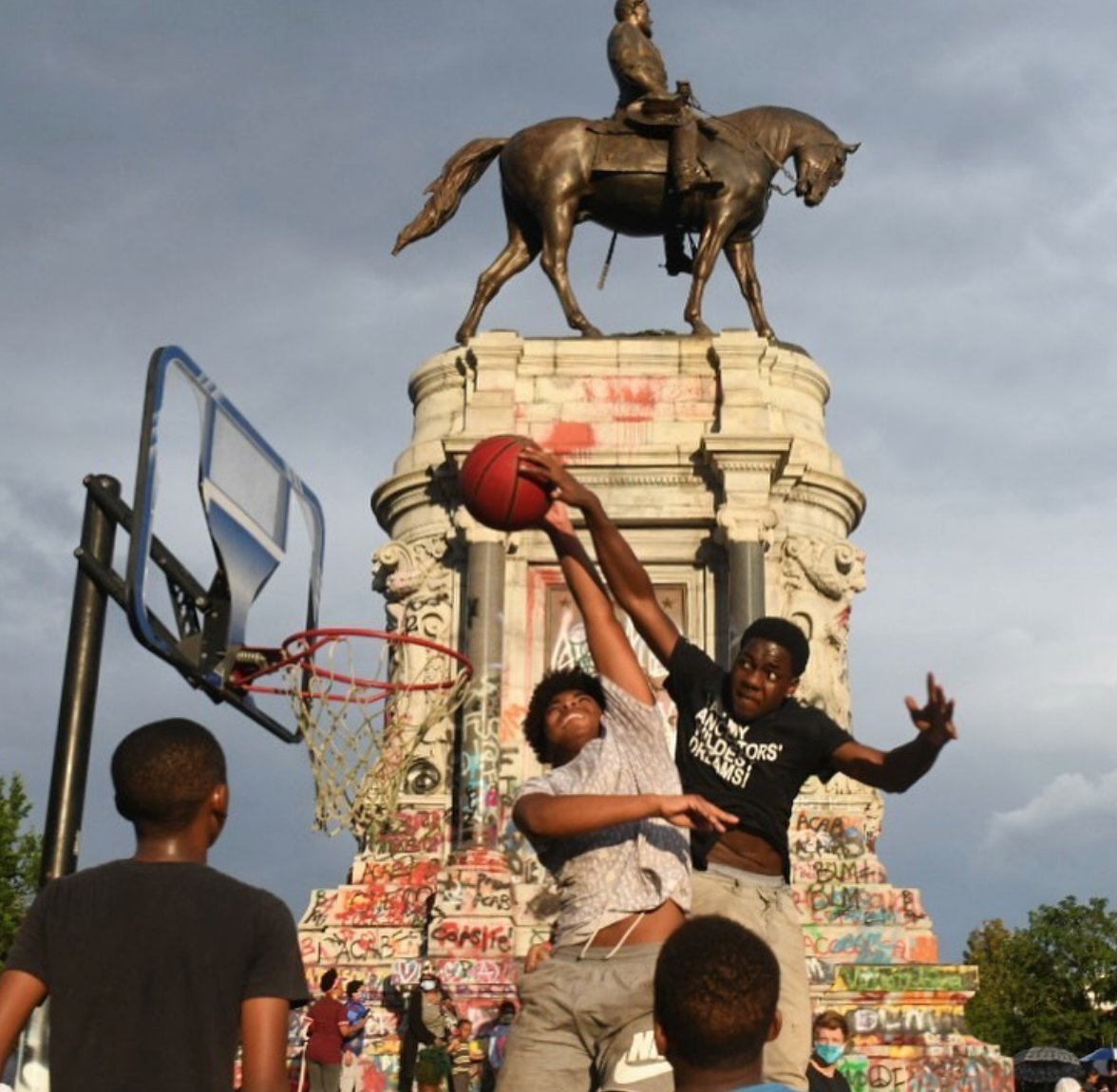Should history be forgotten?
We are tearing down statues of people we now find immoral. We can stop writing books and making movies about these people, too. We can even stop teaching children about them in schools. We can use our will to create the future we want.

How much of what we call history is simply the parts of history that we include in our cultural narrative? Surely, there were many events and movements culturally significant at the time, but forgotten over time since they were no longer expedient to remember.
And what is history? A historical event is an object of imagination. Yes, it happened. But we were never there. We only learned about it through the minds of others - often, repeated many times before reaching you. The event is not experienced by those who learn about it - instead, we experience the experience of another person, who experiences the experience of another person, and so on.
Each time we experience something, we inject meaning based on our intuition as we turn our experiences into beliefs. And everyone has a distinct intuition because everyone has led a distinct life. So we should not deceive ourselves: we are not receiving knowledge about the events themselves. We are learning as much about each other as we are the events, since the experience of the event can never be repeated ever again.
So what value is the study of history?
If we are say it is useful for present and future decisions, we must believe either:
a) history repeats itself, or b) that factors which effected X outcome in the past, when present, will effect X outcome again.
The former sentiment can be discarded, for if we do not take it literally we have arrived at the latter.
The latter sentiment I characterize as believing the universe is both deterministic and deterministic to such a degree that humans can perceive and predict the future.
I suppose we do this unconsciously, every time we expect that a body in motion will remain in motion and strike us in the face if we do not move out of the way.
But maybe there’s a key difference:
Something that happened in the past is an imaginary experience. Any belief we can draw from it is, too, imaginary.
Something that we are in the act of perceiving (a ball coming straight for your head) is a real experience. Any beliefs we can draw from them are real.
Ultimately, though, all we are left with are beliefs and arguments. I believe X will happen because of Y. I believe this ball will hit me in the fa— ah, fuck!
And perhaps it makes no difference that one belief is imaginary, and another is real: as soon as the moment has passed, you are merely remembering a past event. Memory, the fickle and selective creature she is, can only produce an imaginary belief - the real one, lost to time.
Here’s another way of looking at it: we can use real beliefs to predict real events. We can use imaginary beliefs to predict imaginary events. And when we attempt to use imaginary beliefs to predict real events, we cannot claim knowledge because we never had it in the first place.
On social progress
We are living through a cultural moment centered around police brutality and systemic racism. As a white person who has never personally experienced police brutality or racism, how do I acquire knowledge? Without experience of real events, I cannot hold real beliefs, and cannot predict real events. In other words, all I can expect to take away from this cultural phenomenon is new beliefs and imaginary predictions.
The same applies to the study of history. We learn about the events through the experiences of others.
For those who believe in free will, not determinism, we can never have knowledge of the events and we can never make real predictions about the future. So, truly, what is the point of studying history?
For entertainment? Certainly. As a guaranteed means to effecting a better world, maybe not so much.
But fret not, fellow history-lovers: our imaginary predictions still have positive consequences.
As a society, we are driven by the collective beliefs of its population. By giving others imaginary experiences (via social media, for instance), people form beliefs, make imaginary predictions, and vote to enact laws based on those predictions.
A pleasant side-effect is that the laws we enact increase the likelihood that our predictions will come to fruition, and we end up feeling that our belief in determinism was pretty justified after all.
And thus social progress is made.

